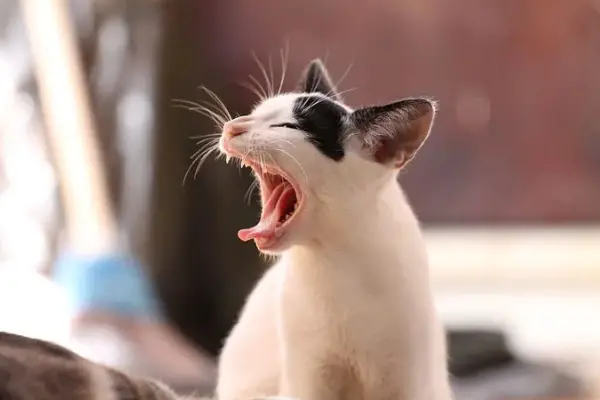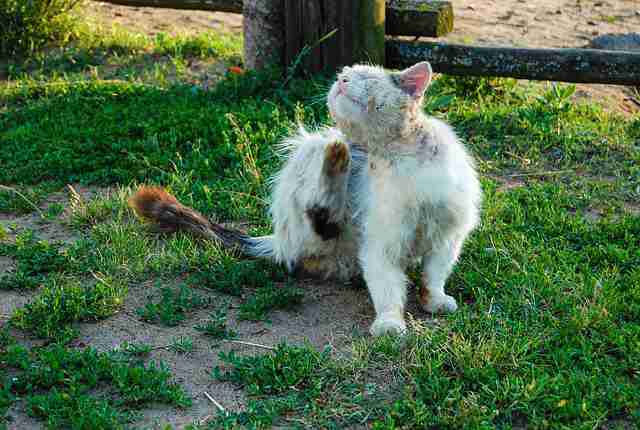9 Potential Reasons Why Cats Lose Weight & Tips
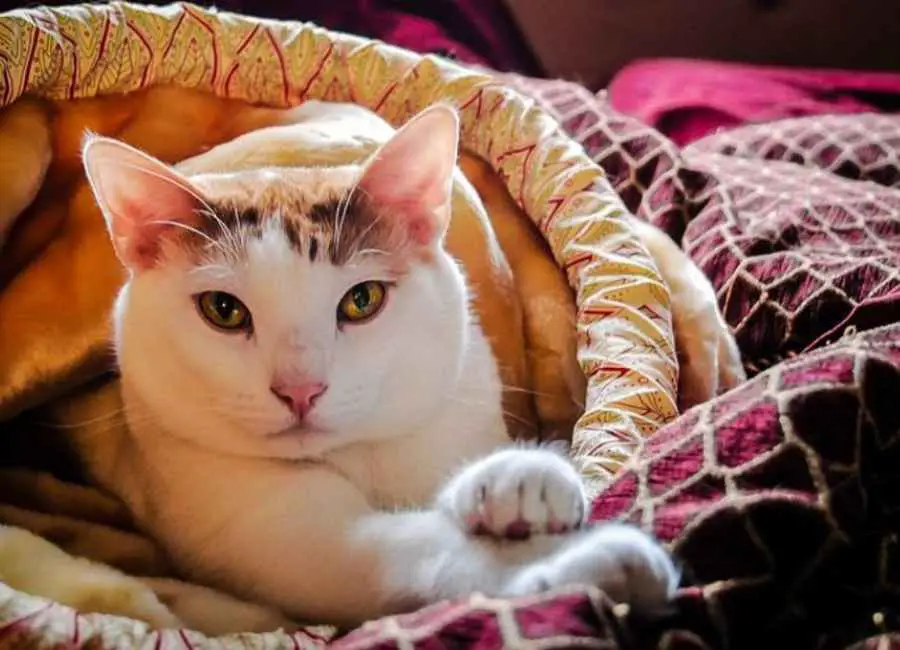
Is your cat losing weight all of a sudden, or you are not sure of your cat’s weight loss, this post is aimed at discussing why cats lose weight?
We’ve all seen it: your cat is losing weight. The first thing to do is make sure that it’s not just a fluke, and that it’s not just a way to tell if your cat is getting older.
After all, cats don’t really have much interest in food unless they’re hungry or actively hunting something down.
If you’ve noticed your cat eating less than usual or showing more signs of illness than normal, then there might be an underlying health issue causing some weight loss.
Why Cats Lose Weight
Cats have a lower metabolic rate than other mammals, so they burn fewer calories than dogs or humans.
Cats also have a less active lifestyle than dogs, so they tend to put on weight more easily.
Some of the reasons why cats lose weight include:
- They don’t get as exercised as dogs do.
- They eat less than dogs do.
- A side effect of deworming a cat.
- They have a low metabolic rate.
- They have a less active lifestyle.
Aside from these reasons let’s look at some potential reasons why cats lose weight that might be beyond your control.
Reasons Why Cats Lose Weight
There are many reasons why cats might lose weight. Some common reasons include being fed a high-carbohydrate diet, being overweight, and having a thyroid disorder.
Cats who lose weight often have a decreased appetite and may not eat as much as they used to.
They may also have difficulty getting up and walking around, which can lead to a decreased activity level.
Cats who lose weight often have a decreased energy level and may be less active overall.
Some cats may also have trouble digesting food, which can lead to weight loss.
The following are some potential reasons why cats lose weight:
Dental disease
Dental disease is a common cause of weight loss in cats. Teeth problems can cause a cat to not eat, which leads to vomiting and weight loss.
In addition, dental disease may lead to an inability for your cat to swallow his food without choking on it or having difficulty swallowing because the mouth is too dry.
Kidney disease
Kidney disease is a common reason for cats to lose weight.
Cats can be affected by kidney disease without any other symptoms, which is why it’s important to keep an eye on your cat and make sure they’re not losing too much weight.
If you notice that your cat has lost weight since the last time they were checked.
It’s important to take them in for further testing to determine what might be causing their sudden drop in body mass.
If your kitty has kidney disease, he or she will need extra calories in order to maintain their body mass at its usual weight level—and this means feeding him/her more food than usual!
Pancreatitis
One of the most common causes of weight loss in cats is pancreatitis, which is inflammation of the pancreas.
The condition can be triggered by eating too much or too quickly and also by fatty foods.
A diet high in fat may cause this problem as well, so if your kitty starts losing weight suddenly, it might be time to switch his food over to a canned or raw one instead of kibble.
Cancer
Cancer is a serious illness that affects the entire body. It can be life-threatening, and it’s not contagious. The good news is that you’ll never get it from your cat!
Cats lose weight when they have cancer, in part, because the stress of their illness can lead to decreased appetite and weight loss.
However, cats also may lose weight due to the chemotherapy or radiation therapy that they receive to treat their cancer.
In addition, many cats experience increased energy as a result of their cancer treatments, which can lead to weight loss.
Ultimately, the weight loss of a cat with cancer is dependent on many factors, including the type of cancer and the treatment plan.
Parasites or worms
If you have a cat that is losing weight, it’s possible they are infected with worms.
Cats can get parasites from eating raw meat or from their mother’s milk.
The symptoms of worms in cats include diarrhea, weight loss, and anemia (low red blood cell count).
If your cat has these symptoms then you should take them to the veterinarian for treatment immediately!
Read more: How Long After Deworming a Cat Are The Worms Gone? (Answered!!!).
Hyperthyroidism
Hyperthyroidism is a common cause of weight loss in cats.
Cats with hyperthyroidism have an overactive thyroid gland, which means they produce more hormones than normal.
This can lead to increased appetite and thirst, frequent urination, and excessive grooming.
These symptoms may be mild or severe depending on how much your cat’s thyroid gland is producing thyroid hormone (a substance that controls metabolism).
Diabetes mellitus
Diabetes mellitus is a condition in which the body cannot produce or properly use insulin.
It’s most commonly caused by a lack of exercise, but it can also develop from certain inherited traits like certain breeds of cats and certain foods.
For example, cat food can be high in carbohydrates that are converted into sugar for cats to digest.
Cats with diabetes may experience weight loss over time due to poor glucose control (i.e., they don’t get enough energy).
In addition to this common symptom, some cats will lose weight due to their increased need for food because of the disease itself.
However, if your cat doesn’t seem particularly hungry or isn’t eating much at all then you should check with your vet first before making any changes yourself so that there aren’t any underlying health issues causing these changes in behavior!
Stress or change in environment or behavior
Stress or change in environment or behavior can cause cats to lose weight.
For example, if you’re moving house and your cat is left alone for long periods of time, he may start eating more food than usual because he’s bored and lonely.
Or if you bring home a new family member (a dog, for example), your cat may be stressed out by all the attention from his new friend.
The stress from these situations will cause the cat to eat more food than usual so that he isn’t going hungry anymore!
Not getting enough food
Cats have a very high metabolism and can burn calories at a much higher rate than a human. When cats are not getting enough food, they will start to lose weight.
There are a few reasons why cats might lose weight when they don’t get enough food.
One reason is that cats typically have a high metabolism and can burn calories at a much higher rate than a human.
When cats are not getting enough food, they will start to lose weight.
Another reason why cats might lose weight when they don’t get enough food is that they will start to eat less.
When cats are not getting enough food, they will start to eat less and their bodies will start to lose weight.
Signs of weight loss in cats
The following are some potential signs of weight loss in cats:
- Reduced skin elasticity
- Cat eats less
- Decreased activity
- Cat has a decrease in energy.
- Increased hairiness
- Cat has difficulty getting up from a lying or sitting position
- Cat has a decrease in muscle mass.
- Increased thirst
- A decreased appetite
- Cat has a decrease in the number of furrows on its back
What to do when a cat starts losing weight
When a cat starts losing weight, there are a few things you can do to help them stay healthy.
First, make sure they have plenty of fresh, clean water to drink. Second, make sure they are getting enough food.
Third, make sure they are getting the right kind of food. Fourth, make sure they are getting regular veterinary care.
Potential risks of weight loss in cats
Here are some potential risks of weight loss in cats:
- Risk of dehydration – Cats lose water as they sweat, and if they don’t drink enough water, they can become dehydrated.
- Weight loss can lead to decreased energy levels, increased hunger, and decreased activity levels.
- Risk of malnutrition – If a cat loses weight quickly, it may become malnourished. This can lead to a number of health problems, including a decrease in immune system function and an increase in the risk of getting sick.
- Risk of developing diabetes – If a cat loses a lot of weight, their body may not be able to process the glucose in their food as well, which can lead to diabetes.
- Weight loss can lead to an increased risk of health problems, including diabetes, heart disease, and cancer.
- Risk of developing bone problems – If a cat loses a lot of weight, their bones may become brittle and may fracture easily.
- Weight loss can lead to decreased quality of life.
- Risk of developing health problems other than those listed – any weight loss can lead to health problems, and cats who lose a lot of weight are at a higher risk of developing other health problems.
- Weight loss can lead to psychological distress.
- Weight loss can lead to a decline in the cat’s social status.
Conclusion
Fortunately, there are many different factors that can cause cats to lose weight.
Some of these factors are due to medical conditions or changes in the environment and others may be due to stress or behavioral issues.
If you notice your cat has lost weight or has other symptoms like vomiting, diarrhea, severe appetite loss, or lethargy then it is imperative that you take them in for a visit from a veterinarian as soon as possible.
The sooner they get medical attention on their issue the less likely it will be something serious like cancer which could lead to death if left untreated for too long.

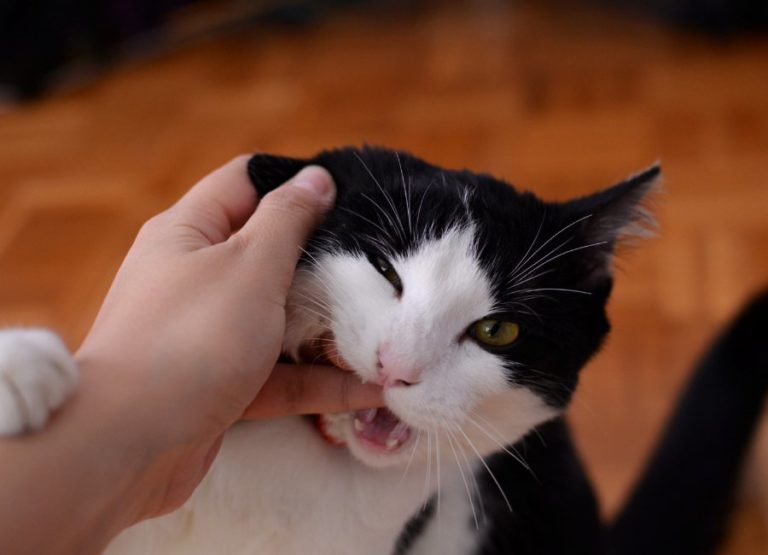
![How Do Cats Get Leukemia [9 Top Ways] How Do Cats Get Leukemia](https://petcreeks.com/wp-content/uploads/2023/04/How-Do-Cats-Get-Leukemia-768x555.jpg)
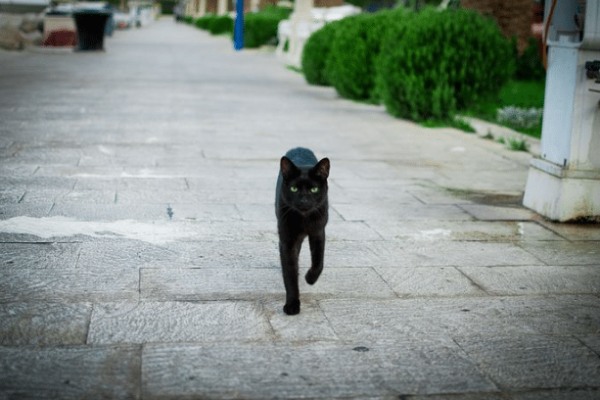
![Transition Outdoor Cat to Indoor [12 Steps] Transition Outdoor Cat to Indoor](https://petcreeks.com/wp-content/uploads/2023/10/pexels-jenna-hamra-776677.jpg)
